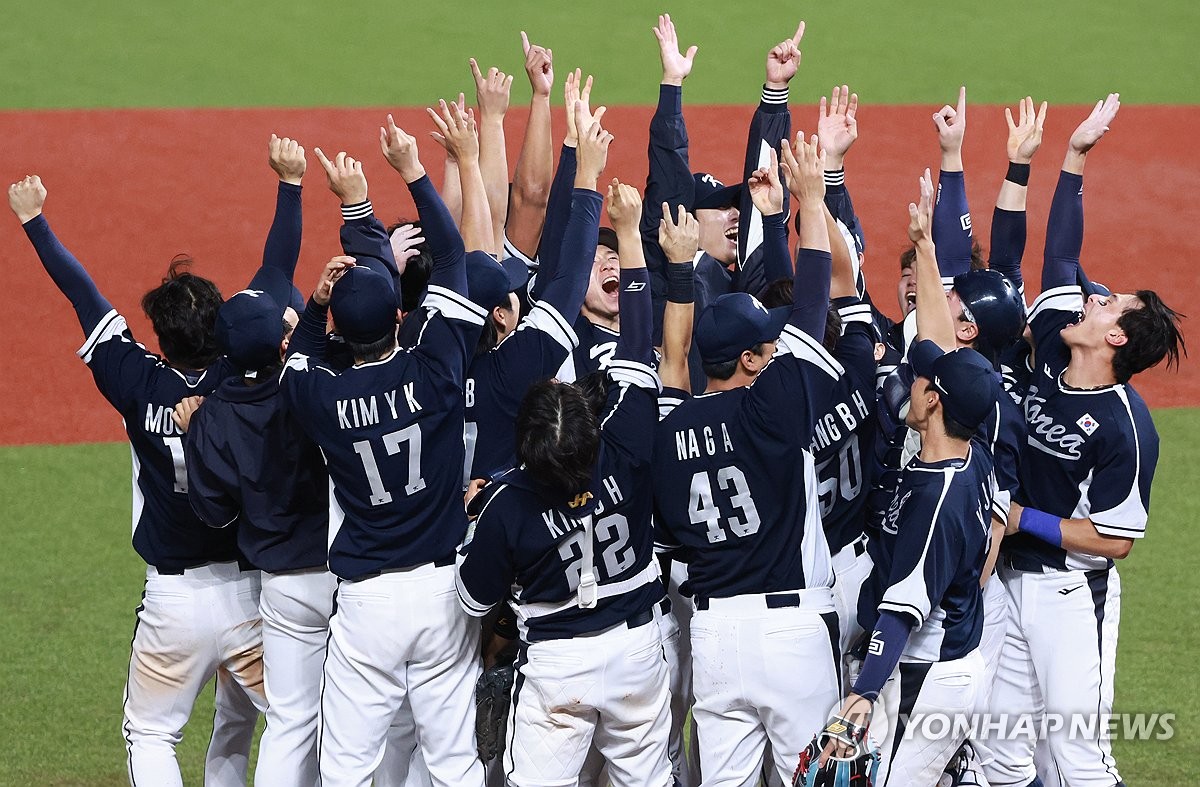- California Assembly OKs highest minimum wage in nation
- S. Korea unveils first graphic cigarette warnings
- US joins with South Korea, Japan in bid to deter North Korea
- LPGA golfer Chun In-gee finally back in action
- S. Korea won’t be top seed in final World Cup qualification round
- US men’s soccer misses 2nd straight Olympics
- US back on track in qualifying with 4-0 win over Guatemala
- High-intensity workout injuries spawn cottage industry
- CDC expands range of Zika mosquitoes into parts of Northeast
- Who knew? ‘The Walking Dead’ is helping families connect
S. Korea puts up good fight, still falls shy of gold medal target
Over the first five days of the medal race at the 19th Asian Games in China, South Korea picked up 24 gold medals, winning five golds each on four of those five days.
The country was not able to sustain that momentum, however, as it collected 18 more gold medals over the final 10 days of the competition in and around the main host city of Hangzhou. A third of those 18 came on Saturday, the penultimate day of the Asiad, as South Korea finished with 42 golds, 59 silvers and 89 bronzes.
The Korean Sport & Olympic Committee (KSOC) had set out to bring home 45 to 50 gold medals and finish in third place behind the two Asian sporting giants, China and Japan. South Korea finished second in the medal tables at every Asiad from 1998 to 2014, and that streak was snapped in 2018, when Japan finished in second place with 75 gold medals, 26 more than South Korea.
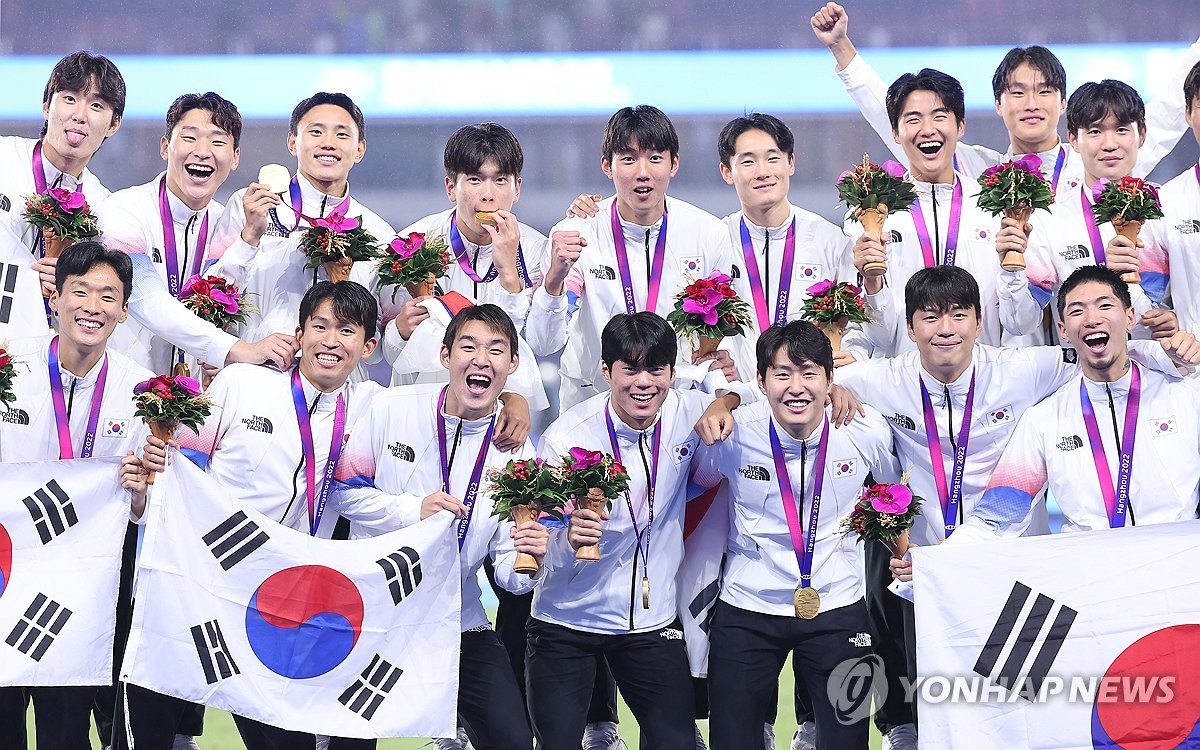
The KSOC acknowledged it would be difficult to topple Japan this time and the more realistic goal would be to narrow the gap with the rival nation.
At least that part of the equation was a success, as Japan finished with 52 gold medals. South Korea did win more medals overall than Japan, 190 to 188.
South Korea’s early gold medals mostly came from two sports: fencing and taekwondo.
The nation’s very first gold medal was won in taekwondo’s poomsae, and South Korea ended up winning five gold medals in its traditional martial art.
South Korea led all countries with six gold medals in fencing, which also produced a pair of double gold medalists: Choi In-jeong in the women’s individual and team epee, and Oh Sang-uk in the men’s individual and team sabre.
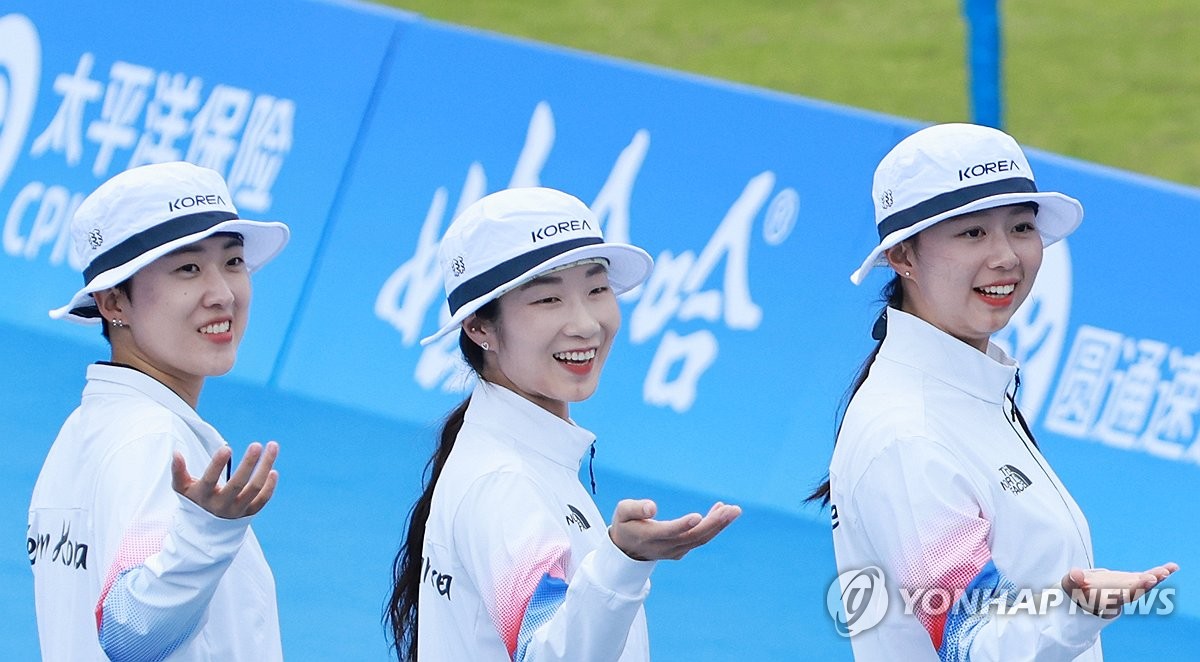
South Korea collected six gold medals and 22 medals overall in swimming, both of them its record totals in the sport at a single Asiad. Rising star Kim Woo-min accounted for half of those six gold medals, as the champion in the men’s 400m freestyle, 800m freestyle and 4x200m freestyle relay. Hwang Sun-woo joined Kim for the relay title and won the 200m freestyle gold medal for himself.
Fencing, taekwondo and swimming all wrapped up in the first week of the medal competition. Archery, as expected, did some heavy lifting for South Korea in the latter part of the Asian Games.
South Korea, the preeminent archery power, gobbled up four out of five gold medals up for grabs in archery — in the mixed team, men’s and women’s team, and women’s individual.
Finals for team sports were all scheduled over the final days of the Asian Games, and South Korea collected some notable gold medals in that stretch.
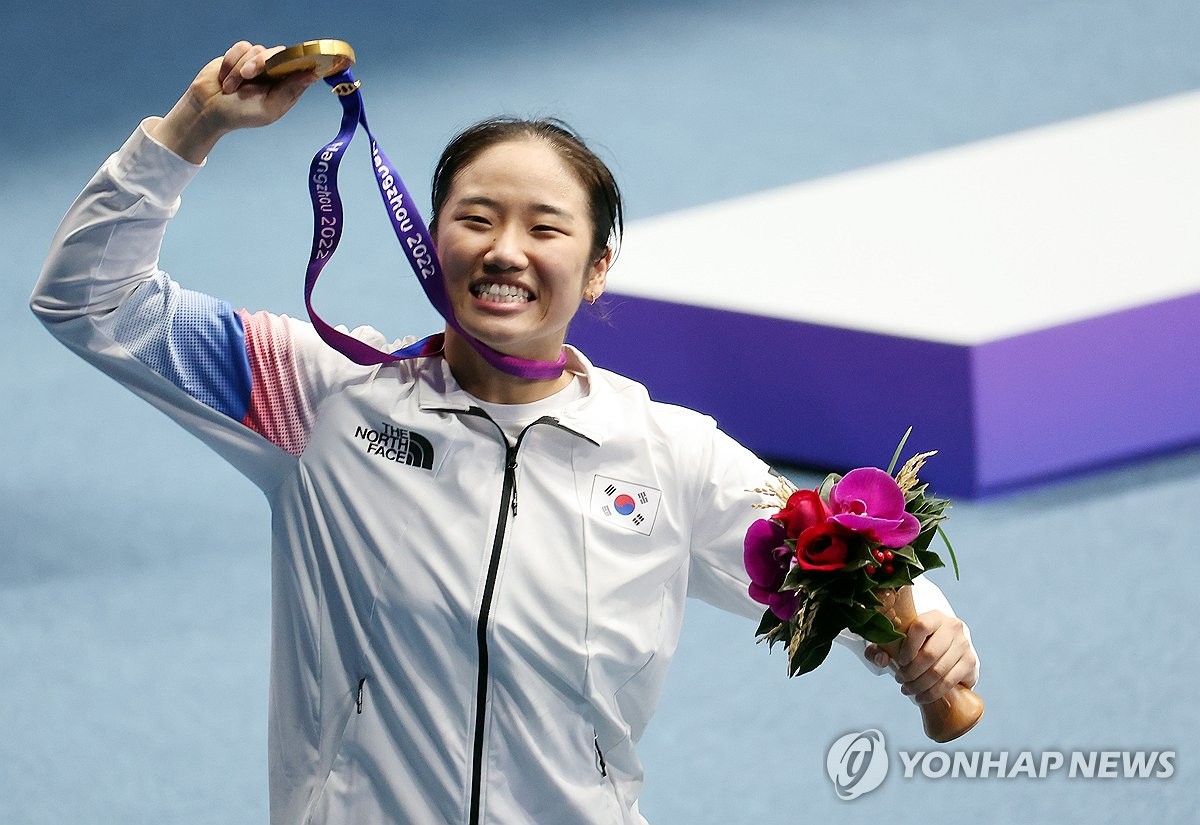
Football and baseball, two of the most popular sports in South Korea, both produced gold medals in Hangzhou. South Korea won its third consecutive gold in men’s football, and fourth consecutive title in baseball — both of them Asian Games records.
South Korea produced several multiple gold medalists, including freestyle swimmer Kim Woo-min and archer Lim Si-hyeon, who each won three gold medals. Badminton star An Se-young, world No. 1 in women’s singles, captured the women’s singles and the women’s team titles.
On the other side of the ledger, South Korea faltered early in men’s and women’s volleyball, not coming close to the podium.
The men’s volleyball team, in particular, was knocked out of medal contention even before the opening ceremony, after losing a qualifying match for the knockout stage. South Korea missed out on a medal in men’s volleyball for the first time in 61 years.
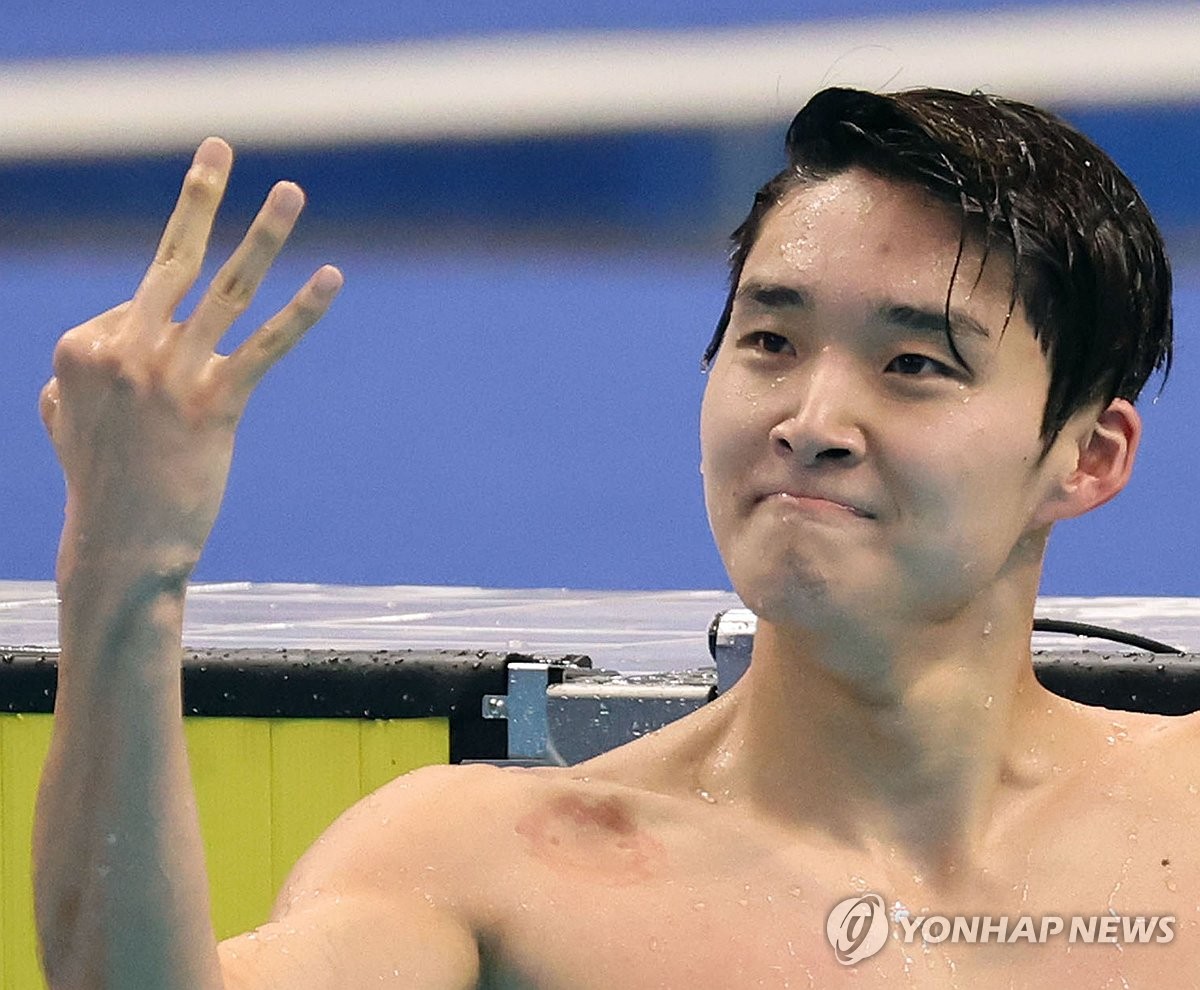
The women’s volleyball program has been on a downslope since the international retirement of the transcendent star Kim Yeon-koung, and the trend continued in Hangzhou as the team finished in fifth place. South Korea missed out on an Asiad medal in women’s volleyball for only the second time.
Elsewhere, South Korea was shut out of gold medals in wrestling for the first time in 13 years. For the second straight Asian Games, South Korea was held to one medal in boxing — after winning six in 2014.
At a wrap-up press conference for the South Korean delegation on Sunday, KSOC President Lee Kee-heung said he would seek to devise long-term plans for elite sports in South Korea to adopt more advanced training systems and learn from examples in other nations.
